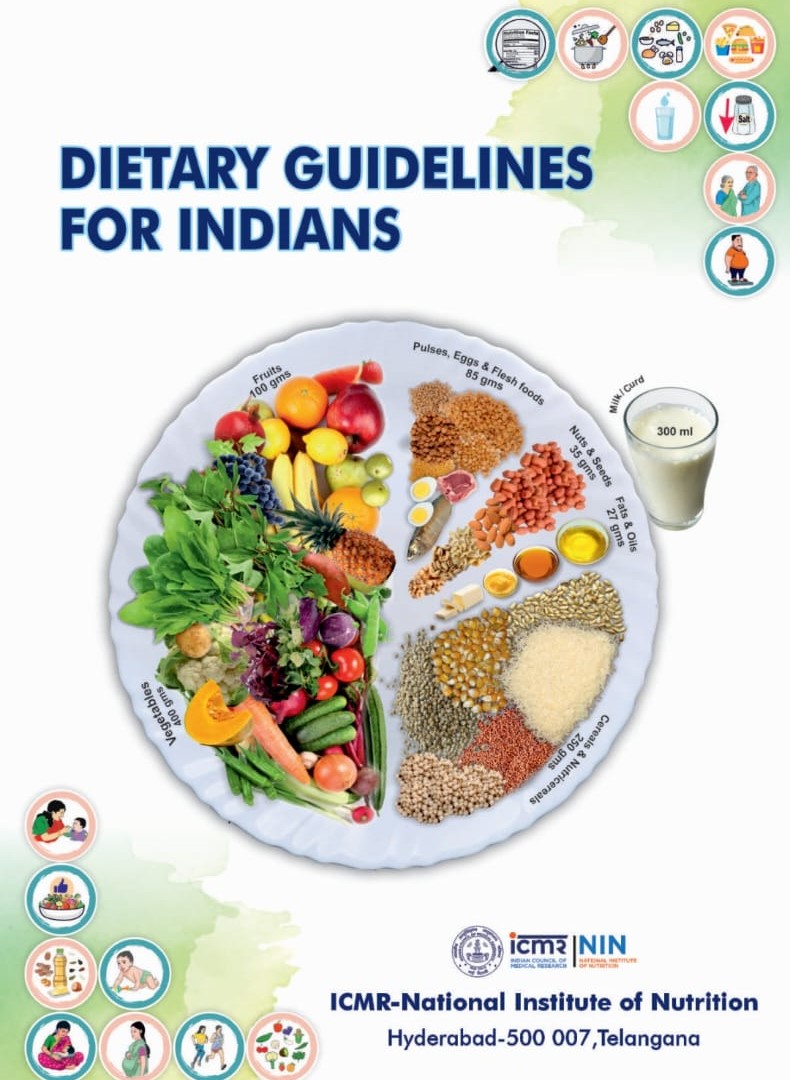The National Institute of Nutrition (NIN), operating under the umbrella of the Indian Council of Medical Research (ICMR), has unveiled its updated ‘Dietary Guidelines for Indians.’ This comprehensive revision, informed by insights into prevalent illnesses, dietary preferences, and recent scientific breakthroughs, underscores the pivotal role of healthy dietary habits and regular physical activity in combating coronary heart disease (CHD), hypertension (HTN), and type 2 diabetes.
Healthy diets and physical activity can reduce a substantial proportion of coronary heart disease (CHD) and hypertension (HTN) and prevent up to 80% of type 2 diabetes.
The set of 17 dietary guidelines includes providing extra food and healthcare during pregnancy and lactation, exclusive breastfeeding for the first six months, followed by continued breastfeeding until two years and beyond, and homemade semi-solid complementary foods to infants soon after six months of age.
Here are ICMR guidelines for Indians:
Protein powder supplements are not recommended as part of daily diets. Whole foods like pulses, nuts, and dairy should be consumed instead.
Whey protein in particular is high in branched-chain amino acids but recent evidence suggests supplements may not provide benefits to muscle growth.
Flax seeds are recommended due to their high fiber and omega-3 fatty acid content which is beneficial for heart health.
Whole grains like jowar, bajra, ragi, and rice should make up half the plate in daily meals.
Pulses like lentils, beans, and peas should be consumed 3-4 times a week.
Green leafy vegetables and other vegetables should make up half the plate in daily meals.
Fruits are recommended, with a focus on locally grown seasonal varieties.
Milk and milk products like curd and paneer in moderation are part of a healthy diet.
Oils and fats should be consumed in moderation, with a focus on mustard, groundnut, sesame, and soybean oils.
The institute has advised that Indians must restrict their sugar intake to 20-25 grams per day since it comes from natural carbohydrates.
Sugar intake from all food sources should be less than 10% of daily calorie intake.
Meat and eggs can be consumed in moderation 1-2 times a week.
Fried and processed foods high in salt, sugar, and fat should be limited.
Water intake should be 8-10 glasses per day.
Breastfeeding is recommended for infants up to 6 months and continued with complementary foods for up to 2 years.
Physical activity of at least 30 minutes per day is recommended for all age groups.
Body weight, waist circumference, and other health parameters should be monitored regularly.
Diets should be customized based on medical conditions, lifestyle, culture, and food preferences.
Nutrition education and counseling is important for adopting healthy dietary practices.
It has further directed consumers to read information on food labels to make an informed and healthy food choice.
👉 Click here to read the latest Gujarat news on TheLiveAhmedabad.com



